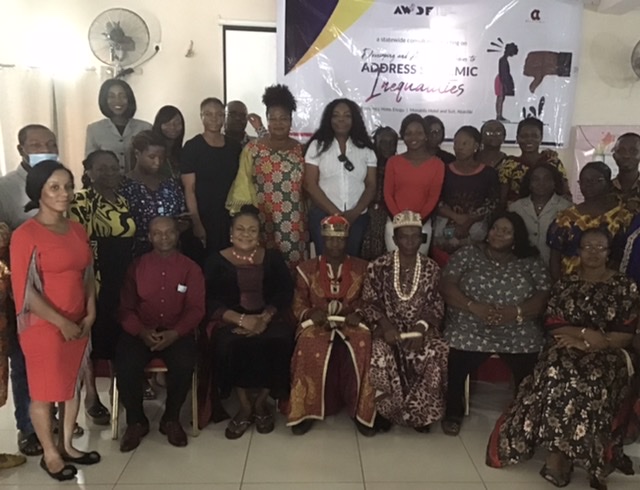A Nongovernmental Organisation, Alliance For Africa (AFA) has held a state wide stakeholders’ consultative meeting aimed at addressing issues of gender inequality in Enugu State.
The Programme Manager of AFA, Mrs Blessing Duru, said that the meeting with the theme, ‘Developing and Adopting Strategies to Address Systemic Inequalities’ was supported by African Women’s Development Fund, Ghana.
Duru, said that the overall aim of the project was to identify traditions that demean women and put them on harms way as well as address systemic inequalities in the society.
She said that the project was being implemented in the two states of Ebonyi and Enugu in the South East zone to address issues of gender inequality in homes, schools, culture, policies, norms and patterns.
She said that issues of inequality mostly affect women, adding that such practices that demean women and promote violence against them in the society were no longer accepted.
“We are here to look at how policies, norms, practices and patterns create unsafe environment for women and how to utilise technology to address violence against women through data generation,” Duru said.
Also, the Second Vice Chairman, Enugu State Traditional Rulers Council, Igwe Raphael Ezeh, said that the council had abolished all harmful widowhood practices and customs in the state.
Ezeh said that the council had taken a wholesome review of the obnoxious traditions in the state, including the ones that negatively affected women.
He said that the practice of forcing a widow to drink the water used to bath the corpse of her late husband as a means of proving her innocence in the death of the deceased had no place in the state.
The traditional ruler said that it was no longer a custom for widows to either barb their hair or wear particular types of clothings as a mark of respect for their late husbands.
According to him, barbing of hair or wearing of particular clothes as part of the mourning process is now family dependent, adding that only the affected widows could decide on such things.
Ezeh appealed to residents of the state to report any harmful widowhood practice they noticed in any part of the state to the council.
The meeting was attended by members of the Civil Society Organisation, International Federation of Women Lawyers, National Human Rights Commission, traditional institution and the media.
